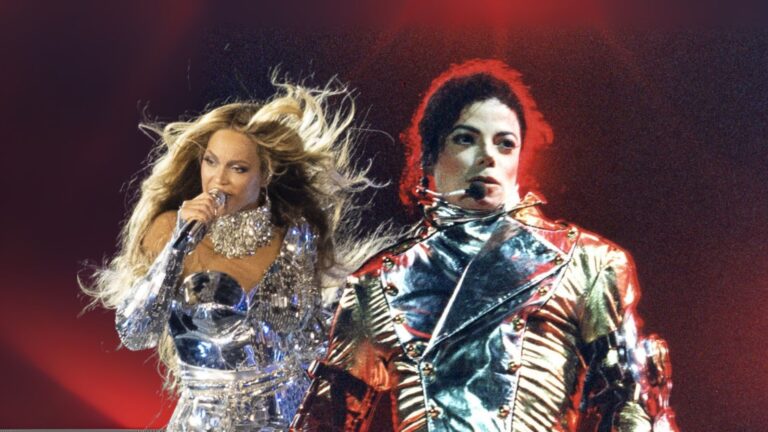After Beyoncé’s history-making Cowboy Carter Tour finale, Tiktok ignited a fierce debate without showing signs of slowing down: Who occupied the supreme rule – Beyoncé or Michael Jackson?
The initial admiration for her record-breaking rural crossover has emerged as a mature generational cultural war, with users dissecting vocals, performances, chart statistics and cultural influences through split-screen videos and fast-shooting threads. For some, Beyoncé’s genre goes against artistry and 21st century advantages to indicate royal passes. For others, Michael Jackson’s legacy as king of pop music remains untouchable.
But, besides the Stan War and viral editing, there is a deeper question: Are we witnessing the evolution of the pop royal family, or are we eager to compare two icons formed in completely different eras? To me, these two artists are exceptional – they cannot be copied in any way.
For Beyoncé’s supporters (like myself), this argument is convincing: few artists in history matched her level of achievement, innovation, and cultural influence. She redefined the boundaries between pop and R&B, and recently, she daring her boldly trekking into country music with Cowboy Carter, a move that not only challenges genre norms but also forces long-standing institutional developments, such as artists choosing to give up on music on Friday rather than Tuesday.
Her 2013 surprise visual album of the same name revolutionized the way music was released and consumed, triggering a wave of unannounced digital Didi and prompted the Recording Academy to reconsider genre classification in response to her boundary fusion work.
From becoming the first artist in history to have a tour of over $400 million to maintaining full creative control over his brand and vision, Beyoncé represents a new blueprint for superstars in the digital age, deeply rooted in strategy, excellence and artistic autonomy.
Although many of her peers entered their traditional artist era, relying on nostalgia to maintain relevance, Beyoncé is still evolving. She challenges herself and the industry in every project, not only staying relevant but also dominant, just like a real champion of modern music.
Michael Jackson, on the other hand, remains an unshakable idol whose influence continues to shape the foundations of modern music and pop culture. Often known as the King of Pop Music, Jackson not only participated in the music industry, but also changed the music industry. Before the age of viral content and an algorithm-driven reputation, Jackson attracted the world through pure talent, innovation and wonder.
His 1982 album Thriller remains the best-selling album of all time, a culturally huge album that blends racial and genre barriers in the form of pop, R&B and rock. Due to the bad and dangerous, he continues to redefine the look and sound like he is producing high concept visuals, choreographed performances and film music videos that become the benchmark for the industry.
For many, Michael Jackson is not only an artist, but also a prototype. A strange force whose contributions have laid the foundation for today’s stars, including Beyoncé himself, have built his own career.
While the debate is interesting, comparing Beyoncé to Michael Jackson ends up like comparing apples to oranges – extraordinary, but growing in completely different conditions. Michael Jackson became famous in a simulation era, and superstars were measured by the sale of physical albums, limited TV shows, and the ability to attract the world without social media immediacy.
On the other hand, Beyoncé mastered the digital age, falling with surprises in landscapes that needed to be constantly reshaped, with cinematic visuals and viral moments attracting global attention.
Despite their different backgrounds, I believe Beyoncé and Michael Jackson are the same power: Strange, genre artists have changed cultural trends, broken barriers and set new standards for excellence. Nevertheless, it is worth noting that some resistances are rooted in misogyny as Jackson, and artists like Chris Brown are often compared with artists like Jackson based on dance moves or sound changes. People tend to ignore Beyoncé’s decades of dominance, and creative autonomy and cultural influences are often dismissed or understated.
Overall, they are all anomalies – artists can not only reflect the times, but they can also reshape them. Their legacy, though in different forms, is deeply consistent in terms of impact. The same category as the people you admire, respect and learn from? That must mean she did it right.


